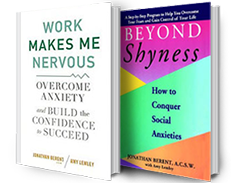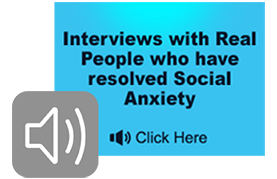The story of Rip Van Winkle is set in the years before and after the American Revolutionary War. In a pleasant village, at the foot of New York’s Catskill Mountains, lives kindly Rip Van Winkle, a colonial British-American villager of Dutch ancestry. Van Winkle enjoys solitary activities in the wilderness, but he is also loved by all in town—especially the children, to whom he tells stories and gives toys. However, he tends to shirk hard work, to his nagging wife’s dismay, which has caused his home and farm to fall into disarray. One winter day, to escape his wife’s nagging, Van Winkle wanders up the mountains with his dog, Wolf. As the story goes, he was given moonshine by the ghosts of Henry Hudson’s crew and slept for 20 years through the hardships, stress, and anxiety of the American Revolution.
To understand Rip Van Winkle Syndrome as a metaphor for social anxiety (2)and social avoidance it’s imperative to be clear about the variations in today’s world which are the equivalent of the moonshine that enabled Rip’s sleep. Also; keep in mind that when anxiety causes avoidance a phobia is present. When social anxiety creates avoidance social phobia is present!
Countless times when parents of dependents ages 16, 26, and 36 initiate treatment they communicate to me “We would have done something but we didn’t know what to do”. The result of this parenting confusion is “enabling”, which resulted in the child’s developmental and accruing social avoidance. This statement is not a knock on parents. It’s a fact about an insidious and very misunderstood anxiety disorder; social anxiety. Please be very clear. Adults with pervasive social anxiety and social avoidance rarely initiate treatment. They are stuck in the homeostasis of primitive functioning which is driven by the avoidance-dependence syndrome. For the most part the psychotherapy community does not understand this syndrome.
I am defining “primitive” as spending the least amount of energy possible to sustain baseline functioning. The primitive homeostasis is the default which characterizes the dependent’s lifestyle. The dependent learns that avoidance is better than experiencing the pain of social anxiety.
Let’s consider the moonshine which enabled Rip’s sleep. Patient X was an intelligent 26 year old a college grad with no social life, except one friend. He had no job. He played 70-80 hrs of video games a week. In the beginning stage of treatment he said to me “I wouldn’t know what else to do with my time” (other than video games). Video games became the anesthesia that enabled him to avoid the stress of life. It was his moonshine. Upon initiation of treatment this was his lifestyle for 5years. Not quite Rip’s 20 but on the way!
Patient Y is also 26. He has a very similar profile. Add to it binge drinking on the weekend and an involved relationship with marijuana. More moonshine. Y did have a group of friends he maintained since high school. The current relationship was totally based on weekend drinking.
Patient Z was an attractive 23 year old female. Her mom initiated treatment after watching The Bing Bang Theory on TV and identifying her daughter’s problem as selective mutism; the same as Raj on the show. Selective mutism is a variation of obsessive compulsive disorder. In essence; it’s a speaking phobia. Although very attractive and athletic, and a member of the college’s elite sailing team Z could not socialize without alcohol in college. In addition she experienced major anxiety in situations that required verbal performance and critical thinking without being dependent on mother.
XYZ are examples of hundreds and hundreds of the approximately 10,000 individuals with social anxiety with whom I have worked since 1978. If you are concerned about an individual with a similar profile understand that because of the social anxiety induced pain the sufferer chooses social avoidance rather than embracing interactive life. Sadly, such sufferers mistake true pleasure for the avoidance of social anxiety. The avoidance becomes a compulsion.
As Rip Van Winkle avoided the stress of life with moonshine, the adult with advanced social phobia escapes stress and anxiety via enabling and various dependencies. Therefore; if you relate to this article as an enabler, understand that in order to be good at avoidance you also have to be good at being dependent. You have the leverage to empower. What you need is a strategy.




